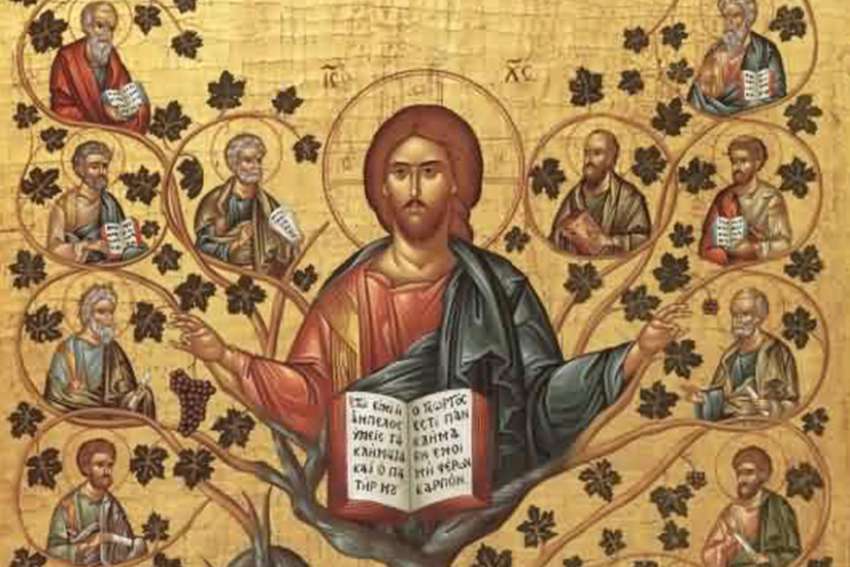The community of Christ-believers in Jerusalem wanted nothing to do with their “guest.” Small wonder — their guest was none other than Saul of Tarsus, their nemesis and persecutor.
The trust level in the community was definitely at rock bottom. In their minds, this was just a trick Saul was using to snare more of them. Barnabas had some fast talking to do and he did it well. He did not offer excuses, explanations or pleas for mercy.
This story was not about Paul; it was about Jesus. All he had to do was relate the dramatic intervention Jesus had made in Paul’s life and its aftereffects. Paul had proclaimed Jesus fearlessly and boldly, and that was all that counted. He should be accepted in the community and he was, but not by all.
There were those who would not forgive him and move on, instead continuing to walk in anger, fear and mistrust. They even wanted revenge and plotted his death. This is a human drama, reflected in the lives of many.
Very few people get through their lives “squeaky clean.” Most lives have their share of blunders, wrong choices, acts of cruelty and selfishness, and just plain old sin. The risen Lord works in all lives and gives us a chance to turn around and do better. It is never too late.
We need not look back and dwell in the past. It is sufficient to cast an occasional glance in the rearview mirror so that we can see how far we have come and offer gratitude to God for grace and mercy. There are always those who are not willing to let us change — they will keep throwing the past in our faces.
The best defence is not explanations, but a joyful, grateful and well-lived life in service to God and others. We cannot change the past, but we can live in the present with an eye to the future.
“Let us love, not in word or speech, but in truth and action.” At first glance, it might appear that human speech is absent from the holiness equation for disciples of Jesus. We know, however, that our manner of speech can indeed be a loving expression of our faith and the spirit that dwells within us.
The author is more concerned with empty speech — lip service — the sort of thing we might expect in a political campaign or TV evangelist. Love is expressed in deeds, and speech must never be a substitute for doing the right (and often difficult) thing.
The only way to live out this truth is to be spiritually transformed by abiding in Jesus. The Greek word that John uses means to dwell or remain, and it becomes a metaphor for life in Christ.
To abide in Christ means 24/7 (or at least an honest attempt), not snippets of time like Sunday morning. The disciple must dwell continually in Christ’s heart, mind and consciousness. That is how we are nourished spiritually and how we are transformed.
John expressed this in the metaphor of the vine. Christ is the vine, providing spiritual sustenance, and we are the branches, fed continuously through this vine. Our words, thoughts and actions will flow from this dwelling in Christ, for He is the source of our transformation and holiness. This is not religiosity or piety, but a way of life.
It is important to remain connected, for once we sever that connection through laziness, sin, inattention or any other reason, our nourishment ceases. This is not punishment, but the consequence of failing to remain connected to our divine source.
It is only when we abide in Him that we can ask and receive whatever we wish, for in that state we are not separate or distant from the Lord. The Lord is only as distant as we wish Him to be.
The image of the vine also reveals that since we all drink from the same well and are nourished from the same source, we are not separate from one another. The Lord can send His true followers out into the world to continue His mission, for when we abide in Him, we become an extension of Christ Himself.
Do we feel nourished spiritually? If not, the vine is not at fault. We know the way back.
God's word on Sunday: Christ nourishes our life on the vine
By Fr. Scott Lewis, S.JFifth Sunday of Easter, April 29 (Year B) Acts 9:26-31; Psalm 22; 1 John 3:18-24; John 15:1-8
Please support The Catholic Register
Unlike many media companies, The Catholic Register has never charged readers for access to the news and information on our website. We want to keep our award-winning journalism as widely available as possible. But we need your help.
For more than 125 years, The Register has been a trusted source of faith-based journalism. By making even a small donation you help ensure our future as an important voice in the Catholic Church. If you support the mission of Catholic journalism, please donate today. Thank you.
DONATE

